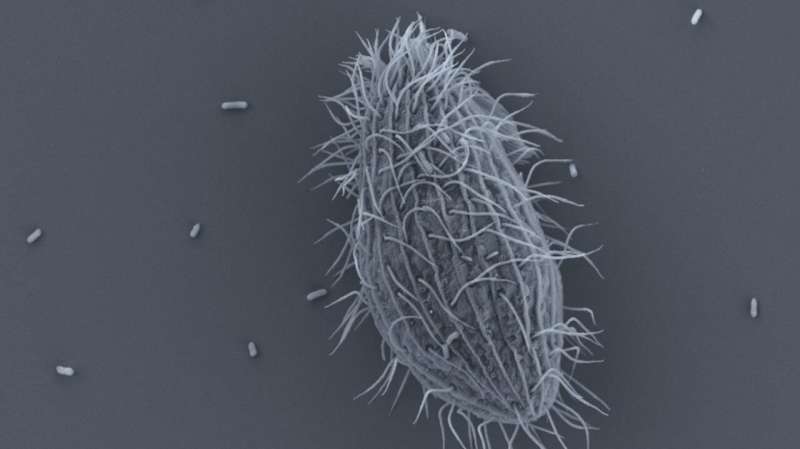This article has been reviewed according to Science X's editorial process and policies. Editors have highlighted the following attributes while ensuring the content's credibility:
fact-checked
trusted source
proofread
Environmental monitoring of bacteria can strengthen community preparedness against diseases

A variety of potentially disease-causing bacteria exist in the Baltic Sea and in Swedish lakes. Karolina Eriksson, a doctoral student at the Industrial Doctoral School at Umeå University, reveals future health risks for humans in the light of climate change in her thesis.
Karolina Eriksson and colleagues have mapped the presence of disease-causing bacteria (pathogens) and their close relatives in our waters. They have particularly focused on bacteria that can survive phagocytosis, the mechanism our immune cells use to kill bacteria. Their findings indicate an abundance of such bacteria in both freshwater and waters with higher salinity, and suggest that climate change could promote some of these types of pathogens.
"Many bacteria that can survive phagocytosis can cause serious diseases in humans, such as cholera, plague, and Legionnaires' disease. With new technologies, we can distinguish these from their close relatives," says Karolina Eriksson.
More pathogens in browner water
Pathogens naturally occur in the environment, often inside amoebas and other organisms. However, it has long been unclear in which waters they exist and how they are favored—knowledge crucial for understanding how they can infect humans and cause disease outbreaks.
A key discovery in the study is that certain pathogens appear to be more common in browner, so-called humified water. Humification increases with climate change and increased land use.
"Both the northern Baltic Sea and many lakes are already affected by humification, impacting whole ecosystems as it favors bacteria over organisms that rely on the sun's energy," Karolina Eriksson explains.
Particularly, the bacterial genus Legionella was found to be more prevalent in the northern part of the Baltic Sea and in lake inflows where the water is humified. Increased humification could also lead to more iron and lower pH levels in the future, conditions that the pathogen Pseudomonas aeruginosa seems to tolerate better than many other non-pathogenic bacteria.
Environmental monitoring can prevent threats
Karolina Eriksson and her team also identified the environmental organisms that could be the host for these bacteria. This increases understanding of how these bacteria interact with ecosystems, a complex and unexplored area.
In her thesis, Karolina Eriksson demonstrates how potential pathogens can be identified and studied in their natural habitats. If combined with environmental monitoring, this can help detect environmental factors that promote these bacteria.
"Continuous and expanded environmental monitoring allows for prevention and action against potential threats, and thus can be valuable for society's preparedness against diseases from bacteria such as Vibrio and Legionella, as well as against new diseases from other bacteria," Karolina Eriksson concludes.
More information: Eriksson, Karolina I. A, Bacteria that escape predation: waterborne pathogens and their relatives. (2023) umu.diva-portal.org/smash/record.jsf?pid=diva2%3A1811621&dswid=8044
Provided by Umea University




















